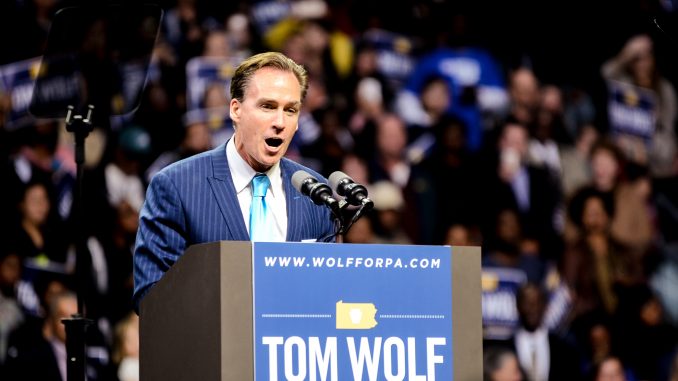
Two members of Temple’s Board of Trustees are running for Lieutenant Governor of Pennsylvania this Tuesday.State Sen. Mike Stack, from Northeast Philadelphia, is running with Democratic candidate Tom Wolf. Jim Cawley, of Bucks County, is running with Republican incumbent Gov. Tom Corbett. No independent candidates are running.
Stack serves on the Board at the appointment by the Pennsylvania Senate President Pro Tempore, currently Joe Scarnati. He is a voting member and serves on the Athletics, Healthcare Enterprise and Student Affairs Committees. Cawley, who holds Temple degrees in Political Science and Law, is the Governor’s non-voting representative.
Typically, non-voting members do not serve on committees due to their other substantial time commitments, said Michael Gebhardt, university counsel and secretary of the Board of Trustees.
One of the important issues for Temple and other state-related schools is the state subsidy. For the 2016 fiscal year, Temple has asked for an increase of $7 million, or about 5 percent more than the current level, which is just below $140 million.
Stack said funding cuts and stagnant funding to schools “directly results in increased tuition rates.”
“It goes exactly against where we’re trying to go in Pennsylvania, [which is] investing in education and investing in young people … so they can be successful and help create jobs,” Stack said.
In March 2011, Gov. Tom Corbett proposed reducing Temple’s funding by around half, from $178.5 million to $82.5 million, due to state budget issues. The final decision was a 19 percent reduction. Tuition for in-state students increased $1,172, from $11,834 to $13,006.
Cawley said the cuts were necessary.
“In tough economic times … we didn’t have as much money in this first term as we would have hoped,” Cawley said. “In years [2012 and 2013] in which we were faced with some difficult decisions in Harrisburg, Temple was the only state-related institution to not raise tuition.”
Increasing funding for higher education would require more revenue for the state, the two said. Taxes on gas companies fracking in the Marcellus Shale in Pennsylvania are lower than any other “high-production” state, and the Wolf campaign sees potential state revenue from the industry.
“We don’t think that’s a silver bullet,” Stack said. “But we do think that’s a major part.”
“We also think we can be more innovative in the way we bring businesses in to the state,” Stack added. “Over the last several years, there’s really been an irresponsible use of tax credits and tax giveaways to companies that aren’t dedicated to staying here.”
Cawley said the second-term plan focuses on improving tax structures for companies to attract them to Pennsylvania.
“Never in [the] course of human history has any society taxed its way to prosperity,” Cawley said. “We’ve got to create an environment in which the private sector … are empowered to do what they do best – create family-sustaining jobs. When folks have jobs, they spend more … then tax revenues in Harrisburg grow. It’s not really rocket science.”
If the Wolf-Stack team wins on Tuesday, both trustees involved in the race may leave the Board. Stack is appointed by the Senate leader.
“We allow the minority leader of the senate to give a recommendation of one of his members,” said Shelly Brown, majority staff administrator for Senator Scarnati. “So if Senator Stack would then become the [Lieutenant Governor] … the minority leader of that caucus would provide a name of another senator that is currently seated.”
Stack said he is not sure what the approach will be toward the Board if he wins.
“It’s important that I continue to play a role in helping Temple build,” Stack said. “I believe that in helping Temple build, we’re helping Pennsylvania build.”
Cawley has twice served as a governor’s non-voting representative, and a victory in the election would most likely keep him in that position. If Wolf is elected, he would be allowed to choose his own representative. Cawley was replaced on the Board in 2003, when former Gov. Ed Rendell took office.
“I am happy and honored to to serve Temple University in any way that I can,” Cawley said. “If there’s an opportunity [in the long-term] future … I would jump at the chance at any time.”
Bob Stewart can be reached at robert.stewart@temple.edu and on twitter @bstew74


Be the first to comment